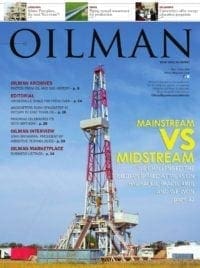In 2001, I teamed up with Academy Award winning producer Gray Frederickson (Godfather II) to begin a film production company. Since that time, I have heard from several in the movie industry who believe that the oil and gas industry should not be respected. Several in Hollywood believe that the oil and gas industry is only for the greedy and that it is not interested in the welfare of others and of the environment.
Having been in the oil and gas industry for thirty-seven years, I have advocated that the message be clear. I continue to point out that the movie industry is a major user of energy and therefore, needs the oil and gas industry. Energy is needed from the beginning to the end of production as well as into the marketing and distribution of the films.
The movie industry needs transportation and the use of power generation. A film project often needs: transportation to and from the sets, the use of autos, trucks and other vehicles including planes and helicopters, fuel for traveling and living for the crew, transportation of animals, air transportation, taxis/limos, phones, rail transportation, caterers, and products made from petroleum including wardrobes, film, air conditioners, carpet, combs and brushes, cameras, and many other items that I show on pages 157 to 159 of my book “America Needs America’s Energy”.
Electricity is needed for lighting, equipment, music, trailers for the actors and others, optical effects, sound, set construction, special effects, generators, computers, photography, set operations, sound stage, ac/heat, washing/drying of clothes, dishwashing, and other. There is even a Gaffer assigned to the specific movie project, (a gaffer heads up the electric department) and electricians are needed.
The sound for the movie needs a mixer, boom operator and microphones, to mention a few of the items needed.
Millions upon millions of dollars are expended for energy to make and distribute the films for our enjoyment. Hollywood has been successful, in great part, due to the energy industry.
We, as consumers, can view the films on DVDs, at the theatre, at our home with the use of energy. The movie industry wants for everyone to strive for energy efficiency and environmental preservation. The oil and gas industry wants the same.
I tell those outside of the oil and gas industry: “think about the use of energy and the importance of the oil and gas industry next time you watch a movie. Know that there are those in the oil and gas industry who are working 24/7 in all kinds of weather supporting the movie industry and providing us all a wonderful lifestyle”.
There would be no strong movie industry without a very strong oil and gas industry. There would be no strong movie industry without a strong consumer base. It is time we come together: The US has the immediate challenge of striving for energy independence. It is extremely important that the US be in a strong position of securing energy reserves within its own boundaries. Therefore, we need a plan. The US needs energy security. America Needs America’s Energy!
Together we can create the People’s Energy Plan! Go to www.peoplesenergyplan.com to join the effort. Facebook: America Needs America’s Energy with over 10,000 supporters plus and growing. — America Needs America’s Energy: Creating Together the People’s Energy Plan!
Mark A. Stansberry, energy advisor and corporate development strategist, has been a columnist and contributor for Energies Media since 2014. He is the author of America Needs America’s Energy: Creating Together the People’s Energy Plan and the host of the National Energy Talk podcast. Stansberry served as U.S. Senator Bartlett’s intern/staff member from 1975-76, and led Senators Bellmon and Bartlett’s State Youth Conference in 1976. Stansberry can be contacted through his website.






